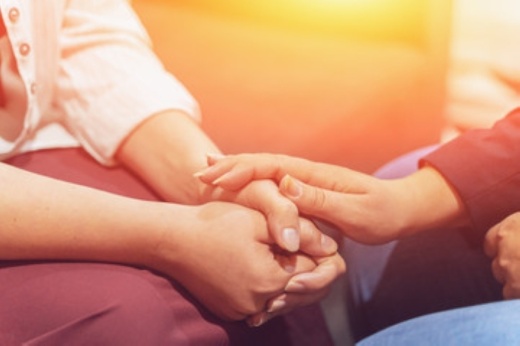Social distancing—avoiding mass gatherings and maintaining a minimum distance of 6 feet from others—has been touted by the CDC as a tool to help mitigate the spread of the coronavirus. As a result, many in-person retail, restaurant and recreational spaces have been ordered to temporarily close as a result of mass-gathering prohibitions.
With more people cooped up indoors and less physical connection to the external world, social distancing can have adverse effects on mental health, Ragland said.
"Ultimately, I think that we are wired and we function best when we are in safe connection with other people—that's just, at our core, the way that we work best,” Ragland said. “And so when all of a sudden those connections start getting severely limited or completely drop off all at once, that's a really huge shock to our system.”
In an effort to increase accessibility to services, Pflugerville Counseling Center has begun conducting all counseling sessions via Telehealth, a technology that provides health resources to clients via video chat. Online counseling sessions assist longtime patients in maintaining routine visits as well as new clients seeking help, Ragland said.
Pflugerville Counseling Center is one of approximately two dozen counseling services available in Round Rock, Pflugerville and Hutto. Ragland joins the ranks of several other centers—including ThriveWorks Counseling in Round Rock, Baylor Scott & White Health in Round Rock and Pflugerville as well as Pflugerville’s Insight Psychology and Behavioral Health Services—to offer teletherapy services during the coronavirus pandemic and increased social isolation.
Some insurance companies include Telehealth as part of mental health service coverage, Ragland said. She recommended clients consult with their providers for individualized information on coverage.
Insured patients can cover their appointment with a copay. Those without insurance or opting for private pay can pay for their services out of pocket, Ragland added. The only essential item a client needs, she said, is an electronic device that has an enabled microphone and camera.
The differences between in-person and digital counseling services, Ragland said, are negligible, with many therapists reporting similar success rates to office visits.
“What happens in the therapy room is all about the feeling of safety, connection, acceptance and support that is happening between you and the therapist,” Ragland said. “And that happens online just as well as it happens face to face.”
Counseling services can treat a range of conditions, Ragland said, from anxiety, depression and marital conflicts to behavioral issues in children and teens. The trauma that can come from social distancing, she added, is just as impactful on children and teens as it is on adults.
“They’re having all the feelings that we’re having too, and I think that sometimes it’s really easy to forget that their lives have been turned completely upside down, and that their routine and schedule is off just like ours,” Ragland said. “And so their behavior is going to be crummy at times.”
The consequential side effects of social distancing, Ragland said, are more than just anxiousness or excessive TV binge-watching. Side effects can reveal themselves in grocery store panic attacks or unexpected tears on a car ride home, she said.
The unspoken side effects of the coronavirus pandemic and the shift in normalcy that has come with it can include a sense of grief, Ragland said. The permission to feel those wide-ranging emotions—from anger and frustration to sorrow and desperation—is crucial, she said.
While individuals may have been struggling with their mental health or certain life factors prior to the coronavirus pandemic, Ragland said the outbreak has added extra layers of physical, mental, emotional and psychological stress. In turn, she said, these can exacerbate symptoms and affect people’s ability to cope with the current situation.
“It’s a lot of loss. That’s what we are collectively experiencing, in addition to the fear of the unknown,” Ragland said. “It's grief of what we thought was happening. The sense of security that we had two weeks ago, and that businesses were running as they could or should, and we all had normal lives.”
It is important to maintain social distancing habits, Ragland said, while also doing things that fuel personal health—physically, mentally, emotionally and spiritually. Walks or runs outside, along with indoor workout videos and yoga flows, can help keep people in good health while also easing stress they might be experiencing.
Ragland recommended limiting screen time and being intentional about reading, journaling, drawing and other creative activities. Making a to-do list will help add structure and routines to day-to-day living, while meditating can help calm one’s mental and emotional states, she added.
Ragland said the overwhelming feeling many are experiencing can be described as “the window of tolerance”: the amount of life people can handle before it causes them to panic. Some give into their emotions, while others may isolate themselves or regress into their thoughts.
In moments of uncertainty and amid the fear of the unknown, the most important thing people can remember, Ragland said, is to be gentle with themselves and to take each day a moment at a time.
“It's just giving ourselves permission to be where we are, and saying it out loud, I think, is an important part,” Ragland said. “And that's part of where therapy can be helpful—it's having a space where you get to name it and there's a holding space for it. And it's being like ‘of course this is happening, of course your body is experiencing this.’”
For information on counseling services near you, click through or interactive map below for more information.
Are you a licensed practitioner in Round Rock, Pflugerville or Hutto not included in our map’s listing? Email us at [email protected].





